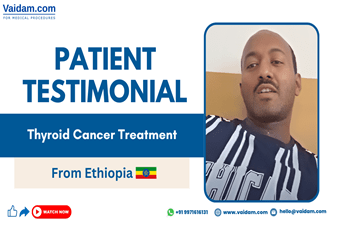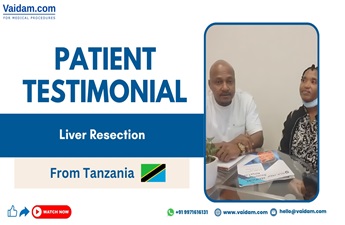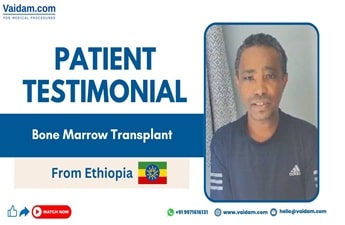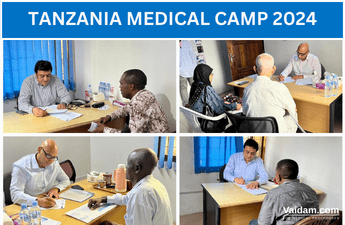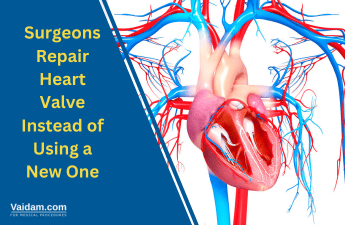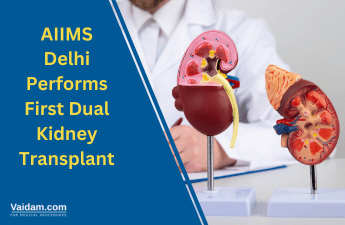India’s renowned and most prominent Advanced Laparoscopic, Minimal Access and Bariatric Surgeon Dr Brahm Datt Pathak is currently located at Fortis Escorts Hospital, Faridabad. He is positioned as a director and senior surgeon. He has 26 years of vast expertise in this field.
He is skilled in doing Laparoscopic and General Surgery procedures. He obtained a fellowship and participated in various training programmes all around the world. Dr Pathak has the Limca book distinction for the biggest spleen (14.9kg) operation. He has successfully performed over 30000 laparoscopic procedures to date. Several national and international publications bear his name. He is particularly interested in laparoscopic surgery, bariatric surgery, and GI surgical treatments involving the abdomen. Dr Brahm Datt Pathak completed MBBS followed by MS from the Institute of Medical Sciences, Rohtak.
His specialization lies in Lap. Cholecystectomy, Lap Appendicectomy, Lap. Inguinal and Ventral Hernias, Lap Nissen fundoplication, Lap. Cardiomytomy and many more such treatments.
In this article, we will discuss the importance of Bariatric Surgery and some risks associated with it.
Bariatric surgery: Significance and Risks
Introduction
Gastric bypass and other weight-reduction procedures, known together as bariatric surgery, entail modifying your digestive tract to aid in weight loss. Bariatric surgery is performed when diet and exercise have failed or when you are suffering from significant health problems as a result of your weight. Some treatments limit the amount of food you can eat. Other treatments operate by impairing the body's capacity to absorb nutrients. Some methods provide both functions.
While bariatric surgery has numerous advantages, all types of weight-loss surgery are significant operations with serious risks and adverse effects. In addition, to assist assure the long-term effectiveness of bariatric surgery, you must make lasting healthy adjustments to your diet and engage in regular exercise.
Types of Bariatric Surgery
- Biliopancreatic diversion with duodenal switch (BPD/DS)
- Gastric bypass (Roux-en-Y)
- Sleeve gastrectomy
Why it's done
Bariatric surgery is performed to assist you in losing excess weight and lowering your risk of potentially life-threatening weight-related health issues, such as:
- Stroke and heart disease
- High blood pressure
- Nonalcoholic steatohepatitis (NAFLD) is a kind of nonalcoholic fatty liver disease (NAFLD) (NASH)
- Chronic sleep apnea
- Diabetes type 2
Bariatric surgery is generally performed only after you have attempted to reduce weight via improved diet and exercise habits.
Who Requires Bariatric Surgery
In general, bariatric surgery may be a possibility for you if your BMI is 40 or above (extreme obesity).
- You have a BMI of 35 to 39.9 (obesity) and a major weight-related health condition such as type 2 diabetes, high blood pressure, or severe sleep apnea.
- If your BMI is 30 to 34 and you have significant weight-related health concerns, you may be eligible for some form of weight-loss surgery.
Bariatric surgery is not appropriate for everyone who is very obese. To be eligible for weight-loss surgery, you may need to fulfil specific medical criteria. You will most likely be subjected to a thorough screening procedure to determine your eligibility. You must also be willing to make long-term adjustments in order to live a healthier lifestyle.
Long-term follow-up programmes that include monitoring your nutrition, lifestyle and behaviour, and medical problems may be necessary.
Also, bear in mind that bariatric surgery is pricey. Check with your health insurance provider or your local Medicare or Medicaid office to see if such a procedure is covered under your coverage.
What are the associated Risks?
Bariatric surgery, like any major treatment, has significant health concerns, both short and long term.
The following risks may be linked with the surgical procedure:
- Excessive bleeding
- Infection
- Adverse reactions to anaesthesia
- Blood clots
- Lung or breathing problems
- Leaks in your gastrointestinal system
- Death (rare)
The long-term risks and consequences of weight-loss surgery differ depending on the procedure. They may include the following:
- Bowel obstruction
- Dumping syndrome, which leads to diarrhoea, flushing, lightheadedness, nausea or vomiting
- Gallstones
- Hernias
- Low blood sugar (hypoglycemia)
- Malnutrition
- Ulcers
- Vomiting
- Acid reflux
- The need for a second, or revision, surgery or procedure
- Death (rare)
How do you prepare?
If you are a candidate for bariatric surgery, your health care team will advise you on how to prepare for your specific kind of surgery. Before surgery, you may need to have a series of lab tests and examinations. You may be limited in what you may eat and drink, as well as which drugs you can use. You may be forced to begin a physical exercise programme and discontinue your usage of cigarettes.
You may also need to plan ahead of time for your recuperation following surgery. For example, if you believe you may want assistance at home, make arrangements for it.
What can you expect?
General anaesthesia is used for bariatric surgery, which is performed in a hospital. This indicates that you are unconscious during the operation.
The specifics of your operation are determined by your personal circumstances, the type of weight-loss surgery you undergo, and the hospital's or doctor's policies. Some weight-loss operations are performed using typical big, or open, abdominal incisions.
The majority of bariatric surgeries are now conducted laparoscopically. A laparoscope is a tiny, tubular device that includes a camera. The laparoscope is introduced into the belly through tiny incisions. The small camera on the tip of the laparoscope enables the surgeon to view and operate within your belly without the need for major incisions. Laparoscopic surgery can speed up and shorten your recovery time, but it is not for everyone.
Typically, the surgery takes several hours. You awaken in a recovery room after surgery, where medical personnel watches you for any problems. Depending on the operation, you may need to stay in the hospital for a few days.
What are the types of bariatric surgery?
Each form of bariatric surgery has advantages and disadvantages. Make sure to discuss them with your doctor. Here are some examples of popular forms of bariatric surgery:
- Roux-en-Y gastric bypass (roo-en-wy): This is the most frequent type of gastric bypass surgery. This procedure is usually irreversible. It works by limiting the quantity of food you can consume in one sitting and restricting nutritional absorption. The surgeon makes an incision across the top of your stomach, closing it off from the rest of it. The resultant pouch is around the size of a walnut and can only carry about an ounce of food. Your stomach can normally contain around 3 quarts of food.
The surgeon next slices the small intestine and sews a section of it directly onto the pouch. Food is subsequently sent via this tiny pouch of the stomach and straight into the small intestine, which is stitched to it. The majority of your stomach and the first portion of your small intestine are bypassed, and food enters directly into the middle region of your small intestine. - Sleeve gastrectomy: Approximately 80% of the stomach is removed during a sleeve gastrectomy, leaving a long, tube-like pouch. This tiny stomach can't hold as much food as it used to. It also generates less ghrelin, the appetite-regulating hormone, which may reduce your urge to eat. The benefits of this surgery include substantial weight reduction and no intestinal rerouting. In addition, a sleeve gastrectomy needs a shorter hospital stay than most other operations.
- Biliopancreatic diversion with duodenal switch: This is a two-stage operation, with the first phase including a technique comparable to a sleeve gastrectomy. The second operation includes bypassing the bulk of the intestine by connecting the end of the intestine to the duodenum near the stomach (duodenal switch and biliopancreatic diversion). This procedure both restricts how much you may eat and decreases nutritional absorption. While it is very successful, it has additional risks, such as starvation and vitamin shortages.
What sort of weight-loss surgery is ideal for you is determined by your unique scenario? Your surgeon will consider a variety of criteria, including your BMI, eating habits, other health concerns, past operations, and the risks associated with each surgery.
Post-bariatric surgery
You won't be able to eat for one to two days after weight-loss surgery to enable your stomach and digestive system to recover. Then, for a few weeks, you'll adhere to a strict diet. The diet starts with liquids alone, then moves on to pureed, extremely soft meals, and then to normal foods. You may be subject to several restrictions or limitations about how much and what you can eat and drink.
In the first few months following weight-loss surgery, you'll also have regular medical examinations to monitor your health. You may require laboratory tests, blood work, and a variety of examinations.
Results
Gastric bypass surgery and other bariatric procedures can result in long-term weight reduction. The amount of weight you lose is determined on the type of surgery you have and the changes you make in your lifestyle. Within two years, you may be able to shed half, if not more, of your additional weight.
In addition to weight reduction, gastric bypass surgery may treat or resolve problems commonly associated with obesity, such as:
- Heart disease
- High blood pressure
- Obstructive sleep apnea
- Type 2 diabetes
- Nonalcoholic fatty liver disease (NAFLD) or nonalcoholic steatohepatitis (NASH)
- Gastroesophageal reflux disease (GERD)
- Osteoarthritis (joint pain)
Gastric bypass surgery can also enhance your capacity to conduct normal everyday tasks, which can help you live a better life.
When weight-loss surgery doesn't work?
Gastric bypass and other weight-loss operations aren't always as effective as you would think. If a weight-loss technique fails or stops working, you may not lose weight and may develop significant health concerns.
Maintain all of your planned follow-up appointments following weight-loss surgery. Consult your doctor right away if you aren't losing weight or if you experience problems. Your weight loss may be tracked, and issues that may be contributing to your inability to lose weight can be investigated.
Even if the operation works properly, it is possible to not lose enough weight or to gain weight following any form of weight-loss surgery. If you do not make the necessary lifestyle adjustments, such as obtaining regular physical activity and eating nutritious meals, you may gain weight.









